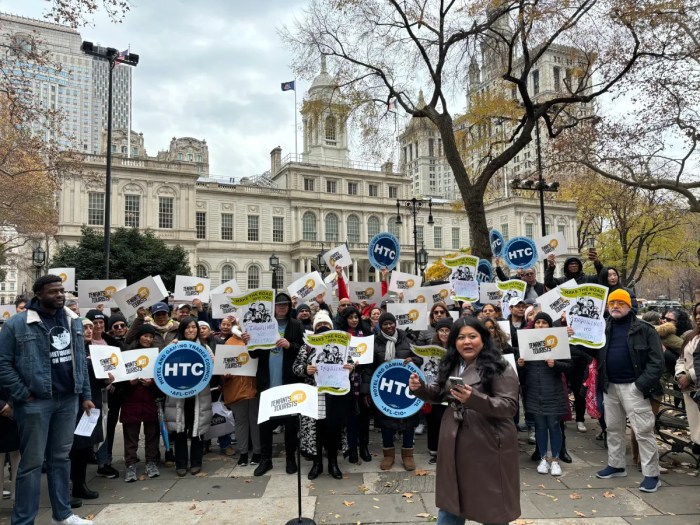By Juan Soto
Glen Oaks resident Arthur Syken was one of the thousands of first responders to the 9/11 terrorist attacks.
The New York State Division of Housing employee did not hesitate when the agency needed volunteers “to go downtown.” The very next day, he was working at Battery Park City, not far from the epicenter of the attacks. He was there until mid-winter helping displaced people find a place to stay and giving out information from other city and state agencies.
“I saw a lot of sad things,” he said “Unfortunately, I got sick.”
He is suffering from thyroid cancer and has lost 40 percent of his lung capacity.
To make matters worse, when he filed papers to retire, he discovered that, unlike uniformed respondents, he was not entitled to the 75 percent disability pension.
To tackle the disparity, state Sen. Tony Avella (D-Bayside) will introduce a bill calling Albany to pass a law that would treat uniformed and non-uniformed 9/11 workers as equals.
“We must make sure non-uniformed respondents get the same benefits as uniformed respondents,” the lawmaker said. “This is about fairness.”
The legislator pointed out, “All the respondents went down to help, and now we should do the most to get them the health care and benefits they need.”
Avella estimated that about 10,000 non-uniform respondents worked in cleanup and other duties in and around ground zero for months.
Syken pointed out that during the first days downtown “we didn’t even have masks. We were breathing that deadly air.”
He said Syken, like many others, “was breathing the same bad air as uniformed workers.” Avella added, “Unfortunately, years later, he (Syken) got sick.”
“Most of first responders are fine, but unfortunately, some passed away and others are getting sick,” the state legislator said.
Avella hopes his colleagues will not put up a fight in Albany. He wants discussion on the bill once the new legislative session begins next year.
“Hopefully, this bill won’t get much opposition,” he said. “There is a cost involved, but this is not about money.”
The lawmaker said he was not aware of the disability benefit difference between uniformed and non-uniformed responders.
“I didn’t know about this,” he added.
Syken wants to retire because of his medical condition, but he can’t. At 55, he would receive a disability pension of $32,000 a year. He said the bill that Avella will be introducing in January “is doing the right thing.”
“I can’t live with $32,000 a year,” he said. “I am sick, I get tired.”
Reach reporter Juan Soto by e-mail at jsoto@cnglocal.com or by phone at (718) 260–4564.




































